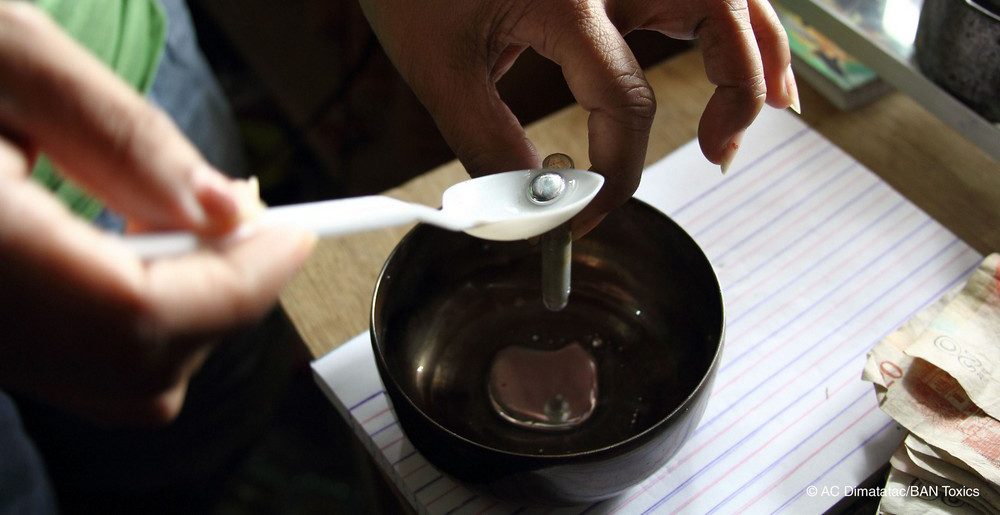
30 May 2017, Quezon City Philippines—The European Union and its member states Bulgaria, Denmark, Hungary, Malta, the Netherlands, Romania and Sweden ratified the Minamata Convention on Mercury last May 18, helping to move the total number of ratifications, which today sits at 53 countries, past the 50-ratification milestone needed to make the Convention legally binding for all Parties.
The Minamata Convention will come into force 90 days after the submission of the 50th instrument of ratification: August 16, 2017. The Convention is the first new global convention related to the environment and health in almost a decade.
“This development is monumental for the advocacy against toxic chemicals and the harm they inflict on the environment and health,” said Richard Gutierrez, CEO of BAN Toxics, a civil society organization on sound chemicals and waste management. “The Minamata Convention represents a united effort to protect human rights to health and a safe environment on a global scale, and finally reaching the 50-ratification threshold is a huge step forward for the global community.”
“No ASEAN member state has ratified the Convention which is alarming because developing countries are at risk of receiving developed countries’ products and waste that contain mercury. The Philippines has been the leader in Southeast Asia on mercury issues and is expected to lead the way and become the first ASEAN member state to ratify the Convention.
“BAN Toxics calls for the immediate ratification of the Minamata Convention. What’s at stake here is no less than our country’s health,” Gutierrez added.
“Not ratifying the Convention increases the risk of the Philippines becoming a dumping ground for toxic mercury that has already been banned in other countries. Becoming a Party to the Convention adds another key layer of protection against obsolete or banned products and wastes containing mercury that are being exported by other countries.
Mercury is considered as one of the top ten chemicals of major health concern according to the World Health Organization (WHO) and endangers the environment and the health of millions of people. The Minamata Convention obliges governments to follow specific measures that keep anthropogenic mercury pollution in check.
According to WHO, there is no safe level of exposure to mercury. It is found in regular consumer products, such as cosmetics, light bulbs, and dental fillings. The most vulnerable to mercury are children, newborn babies and fetuses; populations who eat fish containing mercury, people who use mercury at work, and those who live near sources of mercury pollution are also at risk.
“At the end of the day, the Minamata Convention on Mercury is about protecting our people and our environment from a toxic chemical that persists in the environment forever. We should celebrate the Convention entering into force on August 16 as a true milestone. However, this should also serve as an urgent reminder for the Philippine government that the time for ratification is now.”
Notes:
- The following ASEAN countries signed the Minamata Convention: Cambodia, Indonesia, Malaysia, Philippines, Singapore and Viet Nam.
- Signing the Convention is only the formal expression of a country’s intent to become a Party to the Convention. Signing does not create a legal obligation. A country’s ratification of the Convention legally establishes its consent to be bound by the Convention.
- When the Philippines ratifies the Minamata Convention, it will enter into force 90 days after the country’s ratification.
